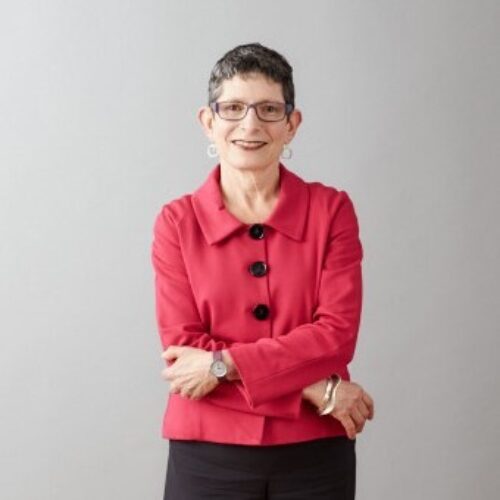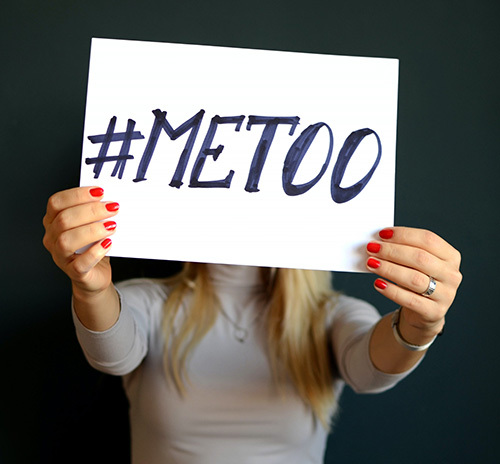
As US law professor Catharine MacKinnon so famously put it in her 1987 book Feminism Unmodified ‘[s]exual harassment, the event, is not new to women. It is the law of injuries that it is new to.’1 Women lawyers – indeed, women in all walks of life – have always known and experienced sexual harassment, long before there was a legal label for it. But some key historical moments have brought the issue to the forefront of public attention. One of those was in 1991 when law professor Anita Hill testified before the Senate Judiciary Committee that was considering the nomination of Clarence Thomas to the US Supreme Court. She told the all-male committee of her experiences of harassment and unwanted sexualisation of her work with Thomas at the Equal Employment Opportunity Commission. It did not go well for her. As is notorious, Thomas was confirmed for a life-tenured appointment to the Supreme Court where he remains today.
In 2006, Tarana Burke coined the phrase Me Too2 which went ‘viral’ in 2017 in the wake of the public discussion about the revelations concerning Hollywood producer (now convicted felon) Harvey Weinstein. That phrase is now readily used as a shorthand for any discussion about sexual harassment. The events of 2017 and in particular, what emerged about Harvey Weinstein, not surprisingly generated a number of podcasts. Perhaps the best known was Catch and Kill, created by Ronan Farrow who had reported the story for the New Yorker.3 That podcast has since been turned into an HBO TV series.4
At the end of 2017, respected US legal podcaster Dahlia Lithwick, the host of Slate’s Amicus podcast, wrote a piece in Slate5 about her own experience of sexual harassment at the hands of a very high profile judge, Alex Kozinski who was shortly thereafter to retire from his position on the Ninth Circuit Court of Appeals.6 As she described in that article, her own breaking of a 20-year silence followed the publication in the Washington Post of an article detailing the stories of six women about sexual harassment by that judge when they worked for him as law clerks/associates.7 Two of the six women, neither of whom had continued working in the law, were prepared to go on the record.
As the Washington Post reported:
[Heidi] Bond, who went on to clerk for the Supreme Court and now works as a romance novelist writing under the name Courtney Milan, and another clerk, Emily Murphy, who worked for a different judge on the 9th Circuit and is now a law professor, described their experiences in on-the-record interviews. The other four women spoke on the condition that their names and some other identifying information not be published, out of fear that they might face retaliation from Kozinski or others.
Lithwick reports that ‘Judge Kozinski had harassed them when they clerked or otherwise worked for him, or when they clerked for another 9th Circuit judge. Bond says Kozinski pulled up pornography on a computer in his chambers and asked if it aroused her. One accuser spoke of him looking ‘her body up and down ‘in a less- than-professional way.’ ‘Another reported about his fixation on the idea that she should exercise naked.’
With some diffidence, given her role as journalist and the potential inconsistency with being a part of the story, in the last episode of the Amicus podcast for 2017, Lithwick interviewed Heidi Bond, Emily Murphy and another former clerk, Leah Litman about their experiences with Kozinski and about what changes might be made to make the singular workplace of clerking for a judge a safer environment.8 Bond/Milan published a piece on her website about Kozinski,9 and the following year, another in Slate about Kozinski and Brett Kavanaugh.10 In the latter article, she links to a description of the judge-clerk/ associate relationship that had been used by Kozinski in a Yale Law Journal article,11 as ‘the most intense and mutually dependent one outside of marriage, parenthood, or a love affair’, one he suggests renders them ‘tethered by an invisible cord for the rest of their mutual careers.’ I was reminded of that evocative description by some of the incidents described by Alex Eggerking in an interview with ABC’s 7.30.12 She was one of the associates of former High Court Justice Dyson Heydon with whom a settlement has recently been reached after they were sexually harassed by him in their work as High Court associates.13 That story had many echoes with the Kozinski story, not least the loss of so many talented women from the profession as those who felt able to go public were no longer working in the law. Notably, those who have gone public in relation to their experiences with Heydon have all left the law.14

But back to US Supreme Court nomination hearings. The 2018 Brett Kavanaugh Supreme Court nomination hearing, in which Christine Blazey Ford gave evidence of having been assaulted by Kavanaugh as a teenager, revived memories for those old enough to remember of being riveted to the television watching the extraordinary nomination hearing for Clarence Thomas in 1991 and the treatment of Professor Hill.15 Almost exactly thirty years after that hearing, in late 2021, a four-part podcast, Because of Anita was released. The podcast brought together an array of distinguished guests including law professor Kimberlé Crenshaw, who served on Hill’s legal team; New Yorker journalist Jane Mayer, who reported on the hearings;16 Tarana Burke; and others. A highlight is the third episode which records the first ever public conversation between Anita Hill and Christine Blazey Ford.
Australia has had its own Me Too moments, including in the legal profession and the specific context of judges’ associates. In addition to the revelations about Dyson Heydon, the Supreme Court of Victoria has recently completed an inquiry into allegations against another judge, leading to yet another public apology from a chief justice.17
While Me Too has generated many podcasts and much debate in the US, in Australia, it has been contended that reporting of such issues is highly constrained due to Australian defamation laws. So much is said by Ruby Jones, host of another 2021 podcast, Everybody Knows18 which looked at sexual harassment in the music industry (an issue that was also tackled by ABC’s Four Corners).19
Among those Jones interviews are Jen Robinson, who acted for Amber Heard and Rose McGowan; and journalist Kate McClymont. At the end of episode two, Jones contends that the Me Too movement in Australia ended after just five days, when Geoffrey Rush filed his defamation proceedings in the Federal Court. Episode 3 is entitled ‘A Broken System’ and Jones speaks there with Bruce McClintock SC with whom she discusses whether Australia’s defamation laws even make it possible to have a ‘Me Too debate’. Not everyone agrees with her about the centrality of those laws,20 but you’ll have to listen to that episode to form your own view. BN
ENDNOTES
1 Catharine A MacKinnon, Feminism Unmodified: Discourses on Life and Law (Harvard University Press, 1987) 103.
2 See https://metoomvmt.org/get-to-know-us/.
3 https://podcasts.apple.com/au/podcast/the-catch-and-kill-podcast- with-ronan-farrow/id1487730212.
4 https://www.hbo.com/catch-and-kill-the-podcast-tapes.
5 https://slate.com/news-and-politics/2017/12/judge-alex-kozinski- made-us-all-victims-and-accomplices.html.
6 https://www.nytimes.com/2017/12/18/us/alex-kozinski-retires.html.
7 https://www.washingtonpost.com/world/national-security/ prominent-appeals-court-judge-alex-kozinski-accused-of-sexual- misconduct/2017/12/08/1763e2b8-d913-11e7-a841-2066faf731ef_ story.html.
8 https://podcasts.apple.com/au/podcast/metoo-in-the-courts/ id928790786?i=1000398163614.
9 https://www.courtneymilan.com/metoo/kozinski.html.
10 https://slate.com/news-and-politics/2018/09/kavanaugh-kozinski-gag- list-emails-senate-hearings.html.
11 Alex Kozinski, ‘Confessions of a Bad Apple’ (1991) 100 Yale Law Journal 1707, 1708.
12 https://www.abc.net.au/7.30/dyson-heydon’s-former- associate-speaks-out/13756018.
13 See the statement of the chief justice at https://cdn.hcourt.gov.au/ assets/news/Statement%20by%20Chief%20Justice%20Susan%20 Kiefel%20AC.pdf.
14 https://www.smh.com.au/national/high-court-inquiry-finds-former- justice-dyson-heydon-sexually-harassed-associates-20200622-p5550w. html: reported the following: ‘One of his former associates… told the Herald that Mr Heydon’s ‘actions had real and terrible consequences’ which led her to abandon her plans to become a barrister. … [A]nother former associate, said she too left the law because ‘the culture was broken from the top down’. She felt she would not be safe ‘from powerful men like Mr Heydon even if I reported them’.
15 Hill has just released her own podcast Getting Even, and in the first episode, she interviews Sukari Hardnett who had had similar experiences with Thomas and made a statement to the Senate about them but was not called to give evidence that would have corroborated Professor Hill’s account: see https://podcasts. apple.com/us/podcast/reimagining-1991-an-unheard-testimony/ id1587355050?i=1000552880327.
16 Jane Mayer recently published an in-depth exposé of Ginni Thomas, the wife of Clarence Thomas, and her links with right wing groups including some that have been involved in litigation before the Supreme Court: see https://www.newyorker.com/. magazine/2022/01/31/is-ginni-thomas-a-threat-to-the-supreme-court.
17 https://www.theage.com.au/national/victoria/chief-justice-apologises- to-women-sexually-harassed-by-judge-20220217-p59x92.html; see also a statement by the judge in question: https://www.petervickeryqc.com/ publications.
18 http://www.schwartzmedia.com.au/news/introducing-everybody- knows-a-new-investigative-podcast-series.
19 https://www.abc.net.au/4corners/facing-the-music:-the-sony-music- scandal/13579828.
20 See for example Jess Hill, ‘The Reckoning’, Quarterly Essay 84, at 27-32.
